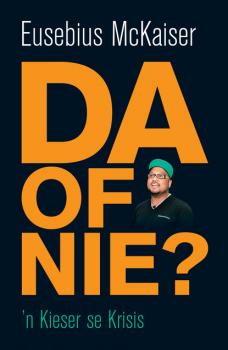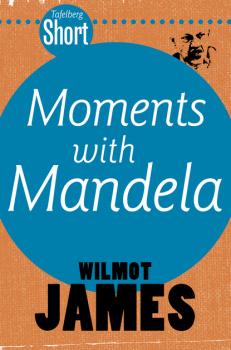ТОП просматриваемых книг сайта:
Социальная психология
Различные книги в жанре Социальная психология, доступные для чтения и скачиванияАннотация
“A revolutionary government is one that carries out an agrarian reform that transforms the system of property relations on the land – not just giving the peasants land that was not in use, but primarily giving the peasants land that 'was' in use, land that moreover had been stolen from the peasants in past epochs.” An international symbol of resistance to oppression, Che Guevara’s influence continues decades after his death. His life and his thoughts inspire activists world wide, including South Africa. The Cuban revolution directly influenced anti-apartheid struggles and was pivotal to South Africa’s democratic transition. In the current era, Guevara’s thoughts are as pertinent as ever to South Africa. 'Che Guevara Talks to Young People' brings together insights, analyses and examples from Guevara’s experience in the late 1950s and early 1960s. Addressing disaffected youth and students, this collection could not be more timely. “Che is an example and a model of what a revolutionary is. Che was a teacher and forger of human beings like himself. Consistent in his actions, he always practised what he preached, and he always demanded more of himself than of others.” – FIDEL CASTRO
Аннотация
“Throughout the ages, man has fought and struggled to free himself from one kind of serfdom or another. The history of man to emancipate himself from slavery by man is well known. It is the story of Europe after the French Revolution, of England after 1215, of South Africa after 1833, of Russia after 1917, of India, Egypt and Indonesia today.” When a group of young political activists met in 1944 to launch the African National Congress Youth League, it included the nucleus of a remarkable generation of leaders: Nelson Mandela, Oliver Tambo, Walter Sisulu, Ellen Kuzwayo and A. P. Mda. It was Anton Lembede, however, whom they chose as their first president. Lembede was known for his sharp intellect, fiery personality and unwavering commitment to the struggle at hand. The son of farm labourers, Lembede had worked tirelessly to put himself through school and then to qualify as a lawyer. His untimely death in 1947, at the age of 33, sent a wave of grief through the Congress Youth, who had looked to him for moral as well as political leadership. «Freedom In Our Lifetime», acknowledges Lembede’s early contribution to the freedom movement, in particular his passionate and eloquent articulation of the African-centred philosophy he called “Africanism.”
Аннотация
Xolela Mangcu has earned a reputation as one of the most vibrant and engaging public voices in South Africa. This selection of his best columns, published locally and internationally over the past two decades, is vivid, polemical and poignant. It records the initial excitement – and growing disillusionment – about the ANC in government, and the leadership meltdown at the heart of the South African crisis. Placing South Africa in an African context, Mangcu examines political transitions and the limits to the politics of patronage in post-colonial societies. He also casts rare light on the relationship between black intellectuals and South Africa's black-led government.
Аннотация
"Until Julius Comes" is a boisterous, unprecedented journey through the wilds of South African politics in an election year. With his sharp wit and perceptive observations, Richard Poplak exposes the tricks of the political trade and the skulduggery that comes with it. Writing under the byline Hannibal Elector, he spares no one: Julius Malema looks like a 'Teletubbie in his EFF onesie'; Jacob Zuma is a tasteless home renovator with 'no access to a Woolworths lifestyle magazine' and Helen Zille sends out 'Braveheart vibes' as she guides her troops into battle. In vignettes that switch between the hilarious, the tragic and the terrifying, Poplak rips back the curtain and exposes the country for what it is: a bustling, contested and divided circus trying to find its way to wholeness.
Аннотация
The R250-million upgrades to President Jacob Zuma's Nkandla estate have tainted his image in the eyes of South Africa and the world. It may even signal the demise of his presidency.
The story of Nkandla goes back to 2004 and Zuma’s connection to Shabir Shaik. In the ensuing years, there have been numerous reports about the lavish spending at the president’s home and in the Nkandla district, and questions about where the money came from and who exactly benefitted.
City Press and Tafelberg Publishers have condensed these stories into an e-book, which examines the saga behind the Public Protector’s report.
The full report, with analysis, is included at no extra cost.
With a foreword by Ferial Haffajee.
The story of Nkandla goes back to 2004 and Zuma’s connection to Shabir Shaik. In the ensuing years, there have been numerous reports about the lavish spending at the president’s home and in the Nkandla district, and questions about where the money came from and who exactly benefitted.
City Press and Tafelberg Publishers have condensed these stories into an e-book, which examines the saga behind the Public Protector’s report.
The full report, with analysis, is included at no extra cost.
With a foreword by Ferial Haffajee.
Информация о книге
Автор произведения City Press
Аннотация
Staan die DA hoegenaamd 'n kans by die stembus?
Of sal verkiesings in Suid-Afrika bloot 'n ras-sensus bly? Is swart kiesers se ongemak met die Demokratiese Alliansie 'n kwessie van beleid – of van toon?
Eusebius McKaiser is bekend daarvoor dat hy geen doekies omdraai nie. In hierdie vermaaklike, ietwat voor-op-die-wa en soms tong-in-die-kies boek, bekyk hy ons amptelike opposisie van naderby.
"Moenie vir hom suurstof gee nie. Hy jaag omstredenheid na. Narsissisme in extremis. Soek net aandag." – Helen Zille oor Eusebius McKaiser (Twitter, September 2013)
"Ek dink Helen Zille is 'n goeie leier." – McKaiser oor Zille … maar hy sê ook:
"Zille is die verkeerde persoon om die Demokratiese Alliansie ná 2014 tot 'n oorwinning teen die ANC te lei."
Of sal verkiesings in Suid-Afrika bloot 'n ras-sensus bly? Is swart kiesers se ongemak met die Demokratiese Alliansie 'n kwessie van beleid – of van toon?
Eusebius McKaiser is bekend daarvoor dat hy geen doekies omdraai nie. In hierdie vermaaklike, ietwat voor-op-die-wa en soms tong-in-die-kies boek, bekyk hy ons amptelike opposisie van naderby.
"Moenie vir hom suurstof gee nie. Hy jaag omstredenheid na. Narsissisme in extremis. Soek net aandag." – Helen Zille oor Eusebius McKaiser (Twitter, September 2013)
"Ek dink Helen Zille is 'n goeie leier." – McKaiser oor Zille … maar hy sê ook:
"Zille is die verkeerde persoon om die Demokratiese Alliansie ná 2014 tot 'n oorwinning teen die ANC te lei."
Аннотация
The post-Apartheid era shows fascinating echoes of the era after the Boer War: Afrikaners learning that they can win by 'losing', the trade-off between vengeance and forbearance, and a worrying trajectory towards nationalism. Efforts to reconcile 'the nation' are treacherous and demand trade-offs. Tim Cohen looks at how Louis Botha and Nelson Mandela managed the transitions they were overseeing – and how both suffered the backlash. Is reconciliation even possible?
Информация о книге
Автор произведения Tim Cohen
Аннотация
What happens when you form a political party six months before a general election? And instantly become the hope of the nation?Mostly chaos! At least that is what 26-year-old Michiel le Roux encountered when he quit his enviable job as a banker at Absa to “make a difference”. He volunteered for the Congress of the People (Cope) and became part of their 2009 election campaign. Very soon, he loses his political innocence in a party paralysed by power struggles, lack of funds and administrative capacity. Fortunately, he keeps his sense of humour amid duties which include rushing to Pretoria at breakneck speed to submit the party’s candidate lists, fending off supporters intent on getting a Cope T-shirt – of which there are none – and driving then-party leader Mosiuoa Lekota to rallies.Uproariously funny, this warts-and-all take on Cope also offers caustic comment on the state of politics in South Africa.
Аннотация
Reading the script of Invictus, finding a new – anti-slavery Afrikaans – name for Mandela's Cape Town home, discussing awkward issues like HIV or coloured politics: through all these Wilmot James's admiration for Mandela's values and fearlessness g
Информация о книге
Автор произведения Wilmot James
Tafelberg Short: A chief is a chief by the grace of his people - Max du Preez
Tafelberg Kort/Tafelberg ShortАннотация
South Africa suffers a crisis of leadership. Yet history offers many an example of spectacular, authentically African leaders, untouched by white influence. Max du Preez has unearthed new data on visionary leaders Maqoma, Mohlomi and especially Moshoeshoe, who founded a peaceful nation through persuasion and prosperity. Moshoeshoe, embracing diversity and new technologies, knew that nothing threatens a nation more than poverty. An absorbing and timely look at what African leaders can be.
Информация о книге
Автор произведения Max du Preez










